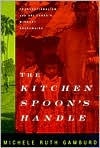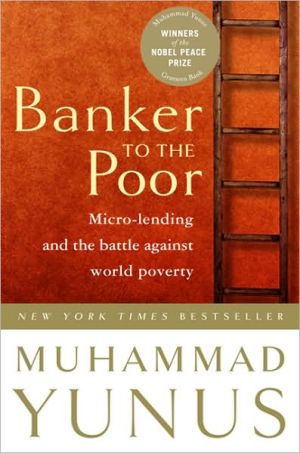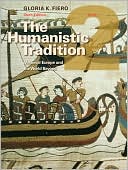The Kitchen Spoon's Handle: Transnationalism and Sri Lanka's Migrant Housemaids
A common Sinhala proverb states, "A woman's understanding reaches only the length of the kitchen spoon's handle." In this beautifully written book on the effects of female migration from Sri Lanka, Michele Ruth Gamburd shows that the length of that handle now spans several thousand miles, rather than a mere twelve inches.\ During the past twenty years, a great many Sri Lankan women have left their homes and families to work as housemaids in the wealthy oil-producing states of the Middle East....
Search in google:
A common Sinhala proverb states, "A woman's understanding reaches only the length of the kitchen spoon's handle." In this beautifully written book on the effects of female migration from Sri Lanka, Michele Ruth Gamburd shows that the length of that handle now spans several thousand miles, rather than a mere twelve inches. During the past twenty years, a great many Sri Lankan women have left their homes and families to work as housemaids in the wealthy oil-producing states of the Middle East. Gamburd explores global and local, as well as personal, reasons why so many women leave to work so far away. Focusing primarily on the home community, rather than on the experiences of the workers abroad, she vividly illustrates the impact of the migration on those left behind and on the migrants who return. As migrant women take on the formerly masculine role of breadwinner, Gamburd explains, traditional concepts of the value of "women's work" are significantly altered. She examines the effects of female migration on caste hierarchies, class relations, gender roles, and family interactions. The Kitchen Spoon's Handle skillfully blends the stories and memories of returned migrants and their families and neighbors with interviews with government officials, recruiting agents, and moneylenders. The book provides a rich and sensitive portrait of the confluence of global and local processes in the lives of the villagers. Gamburd presents a sophisticated, yet very readable, discussion of current theories of power, agency, and identity.About the Author: Michele Ruth Gamburd is Assistant Professor of Anthropology at Portland State University Library Journal Gamburd (anthropology, Portland State Univ.) here studies the effects of the long-term migration of Sri Lankan women to Arab countries, where they work as maids, providing most of the income in their native villages. Few local Sri Lankan men can find appropriate work at home or abroad, upsetting traditional gender roles and potentially contributing to familial discord and financial problems. The book uncovers, but does not get to the bottom of, family disagreements over money. Gamburd's narrators take no responsibility for extortionate interest rates on loans and other avaricious practices, and they blame everyone but themselves for their difficulties. The case histories are not synthesized or well analyzed, but the quantitative summaries are good. Although written for undergraduates, this book is most useful for advanced readers willing to wade through feminist, Marxist, and Foucauldian theories that are disconnected from the case materials (which, if anything, suggest the inappropriateness of these models). Recommended only for research collections in socioeconomic development and women's studies.--Jay H. Bernstein, Fordham Univ. Lib., Bronx, NY Copyright 2000 Cahners Business Information.
AcknowledgmentsIntroduction11Labor Migration: National and International Contexts252Administrative Structures: Getting a Job Abroad483Moneylenders: Crucial Resources and Crippling Interest Rates754Agency: Women's Work Experiences Abroad995Control of Remittances: Prosperity and the Extended Family1236Caste Relations: Social Mobility and Land Reform1517Breadwinners No More: Masculinity in Flux1738Migrant Mothering: On Love and Money1939Immoral Maid and Abusive Employer: The Horror Story Genre209Conclusion232App. AAn Orthography of Spoken Sinhala245App. BCalculating Inflation in Sri Lanka248Bibliography251Index267
\ Library JournalGamburd (anthropology, Portland State Univ.) here studies the effects of the long-term migration of Sri Lankan women to Arab countries, where they work as maids, providing most of the income in their native villages. Few local Sri Lankan men can find appropriate work at home or abroad, upsetting traditional gender roles and potentially contributing to familial discord and financial problems. The book uncovers, but does not get to the bottom of, family disagreements over money. Gamburd's narrators take no responsibility for extortionate interest rates on loans and other avaricious practices, and they blame everyone but themselves for their difficulties. The case histories are not synthesized or well analyzed, but the quantitative summaries are good. Although written for undergraduates, this book is most useful for advanced readers willing to wade through feminist, Marxist, and Foucauldian theories that are disconnected from the case materials (which, if anything, suggest the inappropriateness of these models). Recommended only for research collections in socioeconomic development and women's studies.--Jay H. Bernstein, Fordham Univ. Lib., Bronx, NY Copyright 2000 Cahners Business Information.\ \ \ \ \ From the Publisher"The Kitchen Spoon's Handle is a fascinating and analytically rich exploration of caste, class, and gender. Michele Ruth Gamburd explores the housemaids' diverse narratives with insight and lucidity."-Amita Shastri, San Francisco State University\ "The Kitchen Spoon's Handle is an insightful study of transnationalism that examines the experiences of Sri Lankan domestic workers who labor in oil-rich Persian Gulf states. It offers a deeply nuanced analysis of the shifting, power-laden social relationships that shape international migration and local life, and it is remarkable in its empirical breadth."-Lesley Gill, American University\ "Tremendously engaging, The Kitchen Spoon's Handle presents a deft blending of analytical levels that is both a model for anthropologists who recognize the limitations of traditional village studies and a vindication of the irreplaceable power of face-to-face ethnographic field research. Through the housemaids' own stories, we hear how they resist, conform, and innovate in the struggle to find their bearings within overlapping communities and identities."-Deborah Winslow, University of New Hampshire\ "Michele Ruth Gamburd's evocative case studies make palpable the processes of globalization to which Sri Lankan migrant domestic workers and their families contribute and respond. Through penetrating and sensitive ethnography, Gamburd provides readers with a rigorous analysis of familial, community, national, and transnational relations of inequality, and of the contemporary challenges now reworking those hierarchies."-Sara Dickey, Bowdoin College\ "Michele Ruth Gamburd's ethnography is a richly detailed and carefully argued examination of power relations in Naeaegama, a southern Sri Lankan village. . . The book is an excellent analysis of the social relations underlying concepts such as identity, power, caste, and class."-Caitrin Lynch, Johns Hopkins University. The Journal of Asian Studies, November 2001\ "One of the strengths of this book is the juxtaposing of multiple views on the process of women's emigration. This ethnographically rich project is based on more than 18 months of fieldwork and extensive interviews with returning migrant women and other central actors in the emigration process. . . The retention of gender inequality is one of the most striking narratives presented in The Kitchen Spoon's Handle."-Rhacel Salazar Parrenas, University of Wisconsin-Madison. Contemporary Sociology, Vol. 31, No. 1\ "The Kitchen Spoon's Handle thus illustrates how the global implementation of Western bourgeois hegemony will not proceed without a few ructions; ructions that will excite the scholar and entice the developer to facilitate the implementations with an appropriate ideology of care. The book is a useful contribution for the enhancement of such an ideology. . . Her book should appeal to academics and especially undergraduate students in anthropology and other disciplines such as labour studies, women studies and developmental studies."-Rohan Bastin, James Cook University of North Queensland. The Australian Journal of Anthropology, Vol. 13, No.3, 2002.\ "This book's title draws on a traditional Sinhala proverd on women's domesticity, namely that a woman's mind is no longer than a kitchen spoon's handle. But Gamburd carefully outlines the process whereby, with transnational migration to work as domestic workings in the Middle East, the handle has come to reach several thousand miles rather than a mere twelve inches."-Darshini Anna De Zoysa, University of Sussex. International Migration Review, Vol. 36, No. 2, 2002.\ "The Kitchen Spoon's Handle discusses migration of Sri Lankan domestic workers to the Middle East. Interestingly, Gamburd works in the same village as her anthropologist mother. This unique opportunity and the frank accounts of her fieldwork context add to the book's historical depth concerning village social relationships. . . . The Kitchen Spoon's Handle is an easy read, a good candidate for undergraduate-level classrooms."-Chanasai Tiengtrakul, Hanover College, NWSA Journal 15:2, Summer 2003\ \ \








